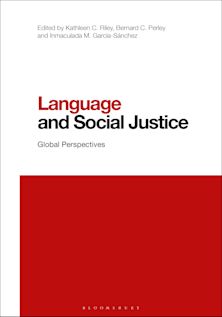- Home
- ACADEMIC
- Anthropology
- Cultural Anthropology
- Two Tales of Crow and Sparrow
Two Tales of Crow and Sparrow
A Freudian Folkloristic Essay on Caste and Untouchability
Two Tales of Crow and Sparrow
A Freudian Folkloristic Essay on Caste and Untouchability
This product is usually dispatched within 3 days
- Delivery and returns info
-
Free US delivery on orders $35 or over
You must sign in to add this item to your wishlist. Please sign in or create an account
Description
This provocative book by a leading folklorist offers a new analysis of caste in India, focusing on the rationale underlying the customs surrounding untouchability. Drawing on clues contained in two fascinating folktales, Alan Dundes goes beyond Dumont's classic Homo Hierarchicus in deconstructing the pervasive pollution complex that prevents millions of individuals from entering temples or drawing water from community wells. His graceful and erudite explanation of caste also illuminates the mysterious worship of the sacred cow as well as sati/suttee, or widow burning. The author concludes by relating caste to the theory of marginal survival, drawing on Gypsy concepts of pollution. This controversial book offers a fresh perspective for anyone interested in India, folklore, and psychoanlytic anthropology-a detailed case study documenting how folklore, as a source of native categories and symbols, can yield unique insights into the unconscious functioning of a culture through time. In this comprehensive textbook, renowned philosopher J. N. Mohanty examines the range of Indian philosophy from the Sutra period through the 17th century Navya Nyaya. Classical Indian Philosophy is divided into three parts that cover epistemology, metaphysics, and the attempt to transcend the distinction between subject and object. Mohanty focuses on the major concepts and problems dealt with in Indian philosophy, including ethics, social philosophy, law, and aesthetics. Students of Indian philosophy at every level will find this a rich and rewarding text.
Product details
| Published | Nov 20 1997 |
|---|---|
| Format | Paperback |
| Edition | 1st |
| Extent | 176 |
| ISBN | 9780847684571 |
| Imprint | Rowman & Littlefield Publishers |
| Dimensions | 9 x 6 inches |
| Publisher | Bloomsbury Publishing |
About the contributors
Reviews
-
Extensively researched, lucidly written, and intrepidly argued, this book brings a psychoanalytic perspective to scholarship on caste. Starting from an analysis of two popular Indian folktales, Alan Dundes boldly follows symbolic clues into realms where few scholars would venture. Even those who disagree with Dundes' assertions will find this essay provocative, inspiring further reflection on the relations between child rearing practices and social institutions.
Kirin Narayan, University of Wisconsin, Madison
-
Dunde's highly individual approach has been tested . . . on almost anything.
Tom Shippey, Times Literary Supplement
-
A lot has been written on this subject, but the present book is a novel one. It gives new insights into the problem of untouchability that other scholars have ignored or overlooked.
S. M. Michael, Institute of Indian Culture, Mumbai, Asian Folklore Studies
-
...he has consistently written with an eye for detail. ...the work under review makes an original and not-easily-dismissed analysis of caste and untouchability in India. ...provocative book... Alan Dundes' application of Freudian folkloristic theory of Indian folktales and social practices has the added merit of intellectual courage....
Stuart Blackburn, Bulletin of the School of Oriental and African Studies
-
Dundes's masterpiece is Two Tales of Crow and Sparrow in whcich he shows how two Hindu folktales illustrate, and can be used to illuminate, the Hindu system of caste and untouchability, the very core of a religion in which practice is far more important than belief.
Journal of Contemporary Religion
-
Using folklore and other data, Dundes not only brings to light patterns that have been overlooked or ignored by earlier investigators but offers a strikingly original explanation that integrates these patterns into a coherent whole. This is creative scholarship at its best.
Michael P. Carroll, University of Western Ontario


































